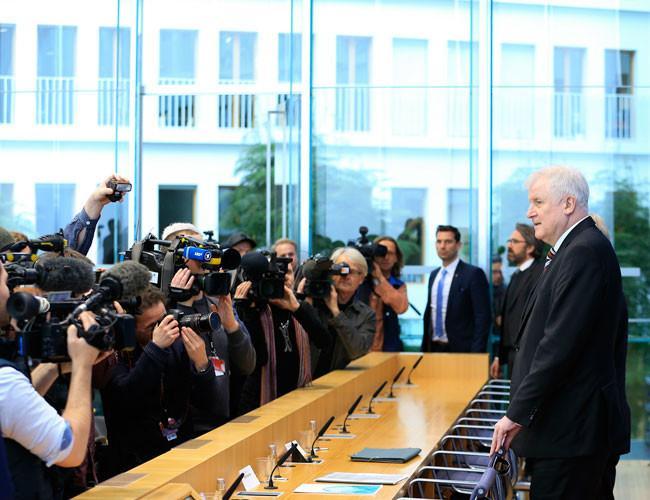Turkish asylum applications to Germany increased by 25 percent: Report
BERLIN

German Interior Minister Horst Seehofer released the government’s migration report in Berlin on Jan. 23.
The number of asylum applications by Turkish nationals in Germany increased to 10,655 in 2018, marking an increase of about 25 percent compared to 2017, Deutsche Welle Turkish has reported.
This figure was recorded as 8,483 in 2017, the report said, basing the figures on the German Interior Ministry data released on Jan. 23.
German government figures show that a total of 185,853 asylum applications were lodged in 2018 — a 16 percent drop from the previous year. Of those claims, around 161,931 came from first-time applicants, while just under 24,000 were follow-up requests.
Interior Minister Horst Seehofer, who presented the asylum data along with the government’s 2016-2017 migration report in Berlin, said a “steady decline” over the past two years indicated policy measures to restrict migration were working.
The fall in applications was due to stricter border controls but also international agreements such as a pact with Turkey to limit refugee flows into the European Union, he added.
The applicants included 32,000 infants under the age of one who were born in Germany to asylum-seeking mothers, Seehofer said.
Syrians remained by far the largest group of applicants with 46,000, followed by Iraqis and Afghans, who numbered 18,000 and 12,000 respectively.
Turkish nationals came sixth on the list with 10,655 applicants after Iran and Nigeria respectively.
Immigration remains a contentious topic in Germany, four years after Chancellor Angela Merkel’s 2015 decision to welcome a record 890,000 asylum applicants.
The latest figures show that Merkel’s government has met its target to limit the number of asylum seekers to between 180,000 and 220,000 a year.
Germany has also been granting asylum to fewer applicants. Last year around 35 percent of applications were positive, down from 43 percent in 2017.
















